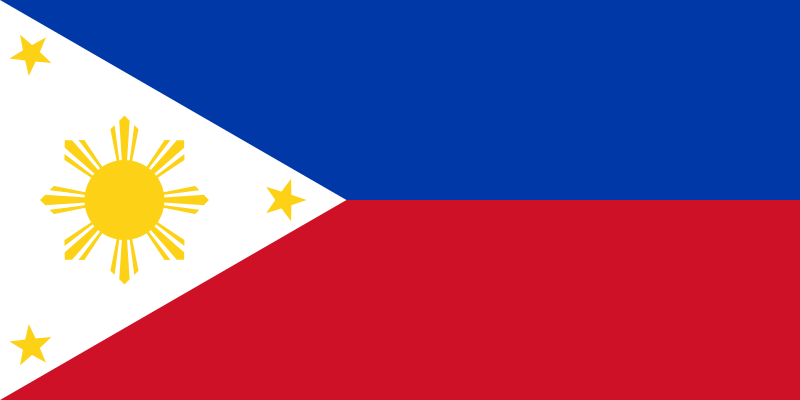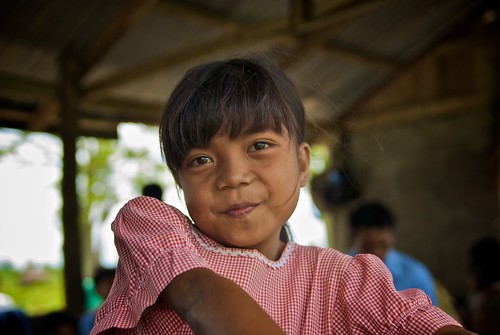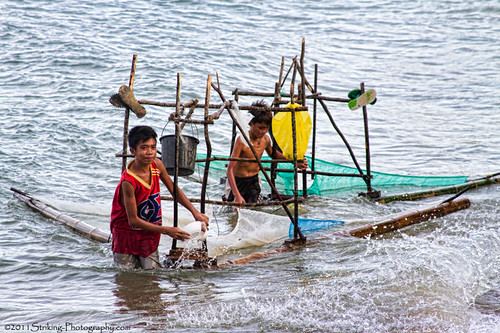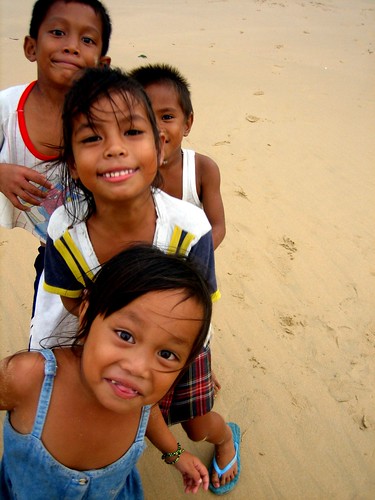Adopting from Philippines
Contents
Philippines Adoption Alert
Notice: Typhoon Haiyan – Message for U.S. prospective adoptive parents (November 18, 2013)
The Department of State wishes to inform U.S. citizens that intercountry adoption processes are functioning in the Philippines at this time. Any U.S. citizen interested in initiating an adoption from the Philippines should contact a U.S. Hague-accredited adoption service provider (ASP) that has also been authorized by the Philippine Central Adoption Authority, the Intercountry Adoption Board, in order to seek information about the intercountry adoption process. The Department of State maintains a list of all currently accredited U.S. ASPs and the Philippine Intercountry Adoption Board maintains a list of those U.S. Hague accredited ASPs that it has authorized.
Prospective adoptive parents that have already been matched with a child by the Philippine Intercountry Adoption Board should work with their U.S. Hague-accredited ASP and with the Intercountry Adoption Board in order to seek any updates on the welfare of children. The Intercountry Adoption Board and Philippine Department of Social Development and Welfare are working to confirm the welfare and whereabouts of children residing in orphanages in the affected areas. The Intercountry Adoption Board has also indicated that prospective adoptive parents awaiting a matching proposal should not be affected by the typhoon recovery efforts.
The U.S. Embassy in Manila is continuing to process Convention adoption immigrant visa appointments at this time.
Notice: ICAB Announces Temporary Moratorium (January 31, 2011)
The Philippine Inter-Country Adoption Board (ICAB) has announced a moratorium on accepting new applications from Adoption Service Providers (ASPs) who submitted more than 10 adoption cases per year for the last three years. This moratorium is designed to allow ICAB to focus its efforts on applications already filed and "enable ICAB to address the protracted waiting period for child placement." ICAB has indicated that the moratorium will be lifted once it has determined that it has been able to meet the needs of at least 50 percent of those currently waiting for a child. We will post more information on the effective end date of the moratorium as soon as it becomes available to us.
This moratorium does not apply to the following cases:
- 1. applications to be matched with special needs children;
- 2. intra-familial adoptions;
- 3. applications submitted by families who received their approval for suitability to adopt prior to January 31, 2011; and
- 4. applications submitted by ASPs that have not reached the cap of 10 adoption cases per year for the last three years. ICAB has provided the names of three U.S. ASPs affected by this suspension to the Department of State, and the Department has notified those ASPs. Please contact your ASP directly to understand whether your case is affected by the moratorium.
If you have any questions about this announcement, please do not hesitate to contact the Office of Children's Issues by phone at 1-888-407-4747 or e-mail at adoptionUSCA@state.gov. You may also find further information on ICAB's website.
Hague Convention Information
The Philippines is party to the Hague Convention on Protection of Children and Co-operation in Respect of Intercountry Adoption (Hague Adoption Convention). Therefore all adoptions between the Philippines and the United States must meet the requirements of the Convention and U.S. law implementing the Convention.
NOTE: Special transition provisions apply to adoptions initiated before April 1, 2008.
As of May 1, 2009 The Inter-Country Adoption Board (ICAB) has announced a moratorium on accepting new applications from prospective adoptive parents seeking to adopt a child between of 0-2 years of age with or without medical/developmental concerns. "Due to the large number of unmatched approved adoption applications for prospective adoptive parents wanting to adopt children" in this age group and the limited number of children currently available for inter-country adoption, ICAB has indicated that the moratorium will be lifted after it has processed at least 50% of these current cases. For further information please visit ICAB'swebsite.
Who Can Adopt
Adoption between the United States and the Philippines is governed by the Hague Adoption Convention. Therefore to adopt from the Philippines, you must first be found eligible to adopt by the U.S. Government. The U.S. Government agency responsible for making this determination is the Department of Homeland Security, U.S. Citizenship and Immigration Services (USCIS). Learn more.
In addition to these U.S. requirements for prospective adoptive parents, the Philippines also has the following requirements for adoptive parents:
Residency
U.S. citizens interested in completing a full and final adoption of a Filipino child while they are living in the Philippines must be residents of the Philippines for at least three years prior to the filing of the adoption petition, and maintain such residence until the adoption is finalized. U.S. citizens living in the Philippines do not need to possess a certificate of legal capacity to adopt. However, prospective adoptive parents must obtain a letter from the U.S. Embassy's American Citizens Services section stating that they do not issue certificates of legal capacity. Prospective adoptive parents who meet these residency requirements should file a petition for adoption with the Philippine Court to begin the adoption process and submit the letter from the American Citizen Services in lieu of certificates of legal capacity.
The Philippine Government may waive these requirements if the prospective adoptive parent (or parents) is a former Filipino citizen who seeks to adopt a relative within the fourth degree of consanguinity as defined by Philippine law, or the prospective adoptive parent is a person who seeks to adopt the legitimate child of his/her Filipino spouse.
Please see the below information provided in " Visa categories under the Hague Convention Adoption" which explains the difference between completing a full and final adoption in the Philippines and obtaining custody for the purpose of adoption in the United States.
Age of Adopting Parents
Based on the Inter-Country Adoption Law of the Philippines (Republic Act No. 8043), the adoptive parent must be at least 27 years of age and at least 16 years older than the child to be adopted at the time of application, unless the adopter/adoptive parent is the biological parent of the child to be adopted or the spouse of such parent. The maximum age gap between the adoptive parent and the child to be adopted must not exceed 45 years.
Marriage
If prospective adoptive parents are married, they must file jointly for adoption.
Income
There are no minimum income requirements set by the Philippines. Prospective Adoptive Parents must however prove financial stability.
Other
Prospective adoptive parents must not have ever been convicted of a crime involving moral turpitude. Parents must be in a position to provide proper care and support and to give necessary moral values to all his/her children, including the child to be adopted. Prospective adoptive parents must agree to uphold the basic rights of the child as embodied under the Philippine laws and the U.N. Convention on the Rights of the Child.
NOTE: Since May 1, 2009, the Inter-Country Adoption Board (ICAB) in the Philippines has set a moratorium on accepting new applicants wanting to adopt children within the age range of 0-2 years old with or without medical/developmental concerns. For more information, please visit the website website.
Visa categories under the Hague Convention Adoption
- 1. The IH3 visa classification is appropriate for a Convention adoptee who was the subject of a full, final, and legal adoption abroad by the petitioner (and spouse, if married) and who will reside in the United States with the Prospective Adoptive Parents. For IH3 visa cases in the Philippines, there should be a certificate of finality of the adoption decree issued by the court. Upon residing in the United States with the citizen parent, after having been lawfully admitted into the United States for permanent residence, and assuming the IH3 visa classification was appropriate and the Convention adoptee is under the age of 18, the child will automatically acquire U.S. citizenship as of the date of admission to the United States.
- 2. The IH4 visa classification is appropriate for a Convention adoptee who will be adopted by the petitioner (and spouse, if applicable) after being admitted to the United States (requires both petitioner intent to adopt and satisfaction of any applicable pre-adoption requirements of the home state). The petitioning U,S. citizen parent must have legal custody of the Convention adoptee and authorization for the emigration and final adoption of the child. For IH 4 visa cases in the Philippines, the ICAB issues a Placement Authority. It is a document that grants custody of the adoptee to the prospective adoptive parent or parents. Convention adoptees entering on an IH4 visa become Legal Permanent Residents upon admission to the United States, but do not automatically acquire U.S. citizenship. A Convention adoptee who enters the United States on an IH4 visa acquires U.S. citizenship as of the date of a full and final adoption decree in the United States as long as the child is under age 18 at the time of adoption and is residing in the United States in the physical and legal custody of the U.S. citizen parent or parents.
Who Can Be Adopted
Because the Philippines is party to the Hague Adoption Convention, children from the Philippines must meet the requirements of the Convention in order to be eligible for adoption. For example, the Convention requires that the Philippines attempt to place a child with a family in-country before determining that a child is eligible for intercountry adoption. In addition to the Philippine requirements, a child must meet the definition of a Convention adoptee to be brought to the United States.
NOTE: The adoption of relatives is common in Philippine culture. Learn more about adopting a relative.
THE PHILIPPINES' ELIGIBILITY REQUIREMENTS:
Relinquishment Requirements: A child is "committed" by way of the "Deed of Voluntary Commitment," a document used by The Department of Social Welfare and Development (DSWD) asking for signature from the biological parents prior to matching the child with a prospective adoptive parent. The document must have the consent of the birth parent(s), releasing the child to DSWD for subsequent adoption. In the event that the child is abandoned or neglected and no parent is available to sign the "Deed of Voluntary Commitment," the DSWD, (upon the petition filed by the head of a licensed and accredited child caring agency or child placing agency or institution managed by the national government, local government unit, non-government organization, or by a provincial, city or municipal Social Welfare Development Officer who has actual custody for the child), shall issue a certification declaring the child legally available for adoption.
Abandonment Requirements: Under the new law, RA 9523, the declaration of abandonment of a child is no longer judicial in nature. In lieu of a court order, the DSWD issues a certification declaring a child legally available for adoption. The time period before a child is considered abandoned has been reduced to 3 months.
How to Adopt
Adoption Authority
The Philippine's Adoption Authority
The Inter-Country Adoption Board
The Process
Because the Philippines is party to the Hague Adoption Convention, adopting from the Philippines must follow a specific process designed to meet the Convention's requirements. A brief summary of the Convention adoption process is given below. You must complete these steps in the following order so that your adoption meets all necessary legal requirements.
NOTE: If you filed your I-600a to adopt a child in the Philippines before April 1, 2008, the Hague Adoption Convention was not in effect for the United States and may not apply to your adoption. Your adoption could continue to be processed in accordance with the U.S. immigration regulations for non-Convention adoptions.
- Choose an Accredited Adoption Service Provider
- Apply to be Found Eligible to Adopt
- Be Matched with a Child
- Apply for the Child to be Found Eligible for Immigration to the United States
- Adopt the Child (or Gain Legal Custody) in the Philippines
- Bring your Child to the United States
1. Choose an Accredited or Approved Adoption Service Provider:
The first step in adopting a child from the Philippines is to select an adoption service provider in the United States that has been accredited or approved to perform Hague Convention adoptions. Only these agencies and attorneys can provide adoption services between the United States and the Philippines.
Please note: In addition to using a U.S. accredited or approved adoption service provider, prospective adoptive parents are required to work with an adoption agency that has also been approved by the Philippine Government. A non-government foreign adoption agency (FAA) intending to process the application of a Filipino child must be accredited by ICAB. Philippine approved agencies can be found on the website for ICAB.
2. Apply to be Found Eligible to Adopt:
After you choose an accredited or approved adoption service provider, you may apply to be found eligible to adopt (Form I-800A) by the U.S. Government, Department of Homeland Security, U.S. Citizenship and Immigration Services (USCIS). Learn how.
Once the U.S. Government determines that you are "eligible" and "suitable" to adopt, you or your adoption service provider will forward your information to the adoption authority in the Philippines. The Philippines' adoption authority will review your application to determine whether you are also eligible to adopt under Philippine law.
3. Be Matched with a Child:
If both the United States and the Philippines determine that you are eligible to adopt, and a child is available for intercountry adoption, the central adoption authority in the Philippines may provide you with a referral for a child. The Philippine's Central Authority for adoptions prepares a report that determines if: the child is "legally available for adoption," the envisaged placement is in the best interest of the child, the birth parent or legal custodian has freely consented in writing to the adoption, and no payment has been made to obtain the consent necessary for the adoption to be completed. Each family must decide for itself whether or not it will be able to meet the needs of the particular child and provide a permanent family placement for the referred child.
4. Apply for the Child to be Found Eligible for Adoption:
After you accept a referral for a specific child, you will apply to the U.S Government, Department of Homeland Security, U.S. Citizenship and Immigration Services (USCIS) for provisional approval to adopt that particular child (Form I-800). USCIS will determine whether the child is eligible under U.S. law to be adopted and enter the United States. Learn how.
After this, your adoption service provider or you will submit an immigrant visa application to a Consular Officer at the U.S. Embassy. The Consular Officer will review the child's information and evaluate the child for possible visa ineligibilities. If the Consular Officer determines that the child appears eligible to immigrate to the United States, he/she will notify the Philippines' adoption authority by issuing an Article 5 letter. For Convention country adoptions, prospective adoptive parent(s) may not proceed with the adoption or obtain custody for the purpose of adoption until this takes place.
Remember: The Consular Officer will also need to make a final decision about the immigrant visa later in the adoption process.
5. Adopt the Child (or Gain Legal Custody) in the Philippines:
Remember: Before you adopt (or gain legal custody of) a child in the Philippines, you must have completed the above four steps. Only after completing these steps, can you proceed to finalize the adoption or be granted custody for the purpose of adoption in the Philippines.
The process for finalizing the adoption (or gaining legal custody) in the Philippines generally includes the following:
- ROLE OF THE ADOPTION AUTHORITY: The Department of Social Welfare and Development (DSWD) issues a certification declaring a child legally available for adoption.
- ROLE OF THE COURT: The Regional Trial Courts are responsible for domestic adoptions in The Philippines. This is where prospective adoptive parents file adoption petitions.
- ROLE OF ADOPTION AGENCIES: The adoption agency facilitates the pre-adoption counseling, submission of application for adoption, home study, child assignment, and application for child's overseas adoption to the Philippine Government.
- ADOPTION APPLICATION: To start the Philippine adoption process, prospective adoptive parents or their accredited foreign adoption agency (FAA) must contact the Philippine Inter-country Adoption Board (ICAB). Application: The prospective adoptive parent or parents file an application with the ICAB through an accredited U.S. adoption service provider.
- 1. Endorsement of Child for Inter-Country Adoption: The Department of Social Welfare and Development (DSWD) must declare a child legally available for adoption as a prerequisite for adoption proceedings.
- 2. Matching: The Inter-Country Adoption Placement Committee matches the child with a person or couple interested in adopting and refers its proposal to ICAB for approval. If the match is approved, the adoption service provider chosen by the prospective adoptive parents in the United States shall be sent a notice of matching proposal. The prospective adoptive parents shall notify their adoption service provider in the United States of his/her decision within 15 days of receipt of the matching proposal. Note: The Philippine Inter-Country Adoption Act prohibits contact between the prospective adoptive parents and the child's parents /guardians or custodians.
- 3. Placement Authority: The ICAB shall issue the Placement Authority within five working days upon receipt of the prospective adoptive parents' acceptance of the matching proposal.
- 4. Application for Immigrant Visa: The child appears at the Embassy for his/her immigrant visa interview.
- 5. Child travels to the United States: The adoptive parent or parents must escort the child from the Philippines to the United States.
- 6. Supervision of Trial Custody: Upon assuming custody of the child, the adoptive parents enter a six-month trial period where the accredited adoption service provider in the United States monitors the child's welfare.
- 7. Petition for Adoption: After completion of the trial custody period, the adoptive parent or parents should file a petition for adoption before the court in the United States.
- 8. Final Adoption Decree. The final U.S. adoption decree should be submitted to ICAB within a month after its issuance.
- TIME FRAME: Adoption processing depends upon many variables, including the availability of children to be matched with prospective adoptive parents, the number of prospective adoptive parents on the waiting list, and the caseload of Philippine social service agencies and the courts.
- ADOPTION FEES: In the adoption services contract that you sign at the beginning of the adoption process, your adoption service provider will itemize the fees and estimated expenses related to your adoption process.
- DOCUMENTS REQUIRED: The following documents, which must be written and officially translated into English, shall accompany the prospective adoptive parents' application for adoption:
- 1. Family and Home Study Reports on the family and home of the prospective adoptive parents;
- 2. Birth Certificates of prospective adoptive parents;
- 3. Marriage Certificate or Decree of Absolute divorce, if applicable;
- 4. Written consent of the prospective adoptive parents' biological or adopted children who are ten years of age or over, witnessed by the Philippine social worker after proper counseling;
- 5. Physical and medical evaluation by a duly licensed physician and psychological evaluation by a psychologist;
- 6. Latest income tax return or any other documents showing financial capability;
- 7. Clearance issued by the police of other proper Government agency of the place of residence;
- 8. Character reference from the local church minister/priest, employer, or a non-relative member of the immediate community who have known the prospective adoptive parents for at least five (5) years;
- 9. Certification from the U.S. Department of Justice or other appropriate Government agency that the prospective adoptive parent or parents are qualified to adopt under their national law and that the child to be adopted is allowed to enter the United States for trial custody and to reside permanently once adopted; and
- 10. Recent postcard-size pictures of the prospective adoptive parent or parents and all immediate family. NOTE: Additional documents may be requested. If you are asked to provide proof that a document from the United States is authentic, we can help. Learn how.
6. Bringing Your Child to the United States:
Now that your adoption is complete (or you have obtained legal custody of the child), there are a few more steps to take before you can head home. Specifically, you need to apply for several documents for your child before he or she can travel to the United States:
- 1. Birth Certificate
You will first need to apply for a new birth certificate for your child, so that you can later apply for a passport. Your name will be added to the new birth certificate.
- 2. Philippines Passport
Your child is not yet a U.S. citizen, so he/she will need a travel document or Passport from Philippines.
- 3. U.S. Immigrant Visa
After you obtain the new birth certificate and passport for your child, you also need to apply for a U.S. visa from the U.S. Embassy for your child. After the adoption (or custody for purpose of adoption) is granted, visit the U.S Embassy for final review and approval of the child's I-800 petition and to obtain a visa for the child. This immigrant visa allows your child to travel home with you. As part of this process, the Consular Officer must be provided the "Panel Physician's" medical report on the child if it was not provided during the provisional visa approval stage.
Child Citizenship Act
For adoptions finalized abroad: The Child Citizenship Act of 2000 allows your new child to acquire American citizenship automatically when he or she enters the United States on an IH3 visa as a lawful permanent resident.
For adoptions finalized in the United States (IH4 visas): The Child Citizenship Act of 2000 allows your new child to acquire American citizenship automatically when the court in the United States issues the final adoption decree.
Please be aware that if your child did not qualify to become a U.S. citizen upon entry to the United States, it is very important that you take the steps necessary so that your child does qualify as soon as possible. Failure to obtain U.S. citizenship for your child can impact many areas of his/her life including family travel, eligibility for education and education grants, and voting.
Traveling Abroad
Applying for Your U.S. Passport
A valid U.S. passport is required to enter and leave Philippines. Only the U.S. Department of State has the authority to grant, issue, or verify U.S. passports. Getting or renewing a passport is easy. The Passport Application Wizard will help you determine which passport form you need, help you to complete the form online, estimate your payment, and generate the form for you to print-all in one place.
Obtaining Your Visa
In addition to a U.S. passport, you also need to obtain a visa. A visa is an official document issued by a foreign country that formally allows you to visit. Where required, visas are attached to your passport and allow you to enter a foreign nation. To find information about obtaining a visa for Philippines, see the Department of State's Country Specific Information.
Staying Safe on Your Trip
Before you travel, it's always a good practice to investigate the local conditions, laws, political landscape, and culture of the country. The State Department is a good place to start. The Department of State provides Country Specific Information for every country of the world about various issues, including the health conditions, crime, unusual currency or entry requirements, and any areas of instability.
Staying in Touch on Your Trip
When traveling during the adoption process, we encourage you to register your trip with the Department of State. Travel registration makes it possible to contact you if necessary. Whether there's a family emergency in the United States, or a crisis in Philippines, registration assists the U.S. Embassy or Consulate in reaching you. Registration is free and can be done online.
After Adoption
What resources are available to assist families after the adoption?
Many adoptive parents find it important to find support after the adoption. Take advantage of all the resources available to your family -- whether it's another adoptive family, a support group, an advocacy organization, or your religious or community services.
Here are some good places to start your support group search:
Child Welfare Information Gateway
North American Council on Adoptable Children
Adoption Services Support Group for Adopting Persons
Contact Information
U.S. Embassy in The Philippines
Embassy of the United States of America, Manila, Philippines 1201 Roxas Boulevard Ermita, Metro Manila - 1000 Tel: (632) 528-6300
The Philippine's Adoption Authority
The Inter-Country Adoption Board
P.O. Box 1622 2 Chicago corner Ermin Garcia Streets Cubao, Quezon City, Philippines Tel: (632) 721-9781/82; (632) 726-4551/68 Fax: (632) 727-2026 E-mail: adoption@icab.gov.ph Internet: ICAB
Embassy of The Philippines
1600 Massachusetts Avenue, NW Washington, D.C. 20036 Tel: (202) 467-9300 Fax: (202) 467-9417 Email: consular@philippineembassy-usa.org Internet: Embassy of the Philippines
The Philippines also has consulates in Chicago, Honolulu, Los Angeles, New York, and San Francisco.
Office of Children's Issues
U.S. Department of State CA/OCS/CI SA-17, 9th Floor Washington, DC 20522-1709 Tel: 1-888-407-4747 E-mail: AskCI@state.gov or Adoption USCA@state.gov Internet: U.S. Department of State
U.S. Citizenship and Immigration Services (USCIS)
For questions about immigration procedures, call the National Customer Service Center (NCSC)
1-800-375-5283 (TTY 1-800-767-1833)
SOURCE
Intercountry Adoption, Bureau of Consular Affairs. U.S. Department of State Country Information[1]










